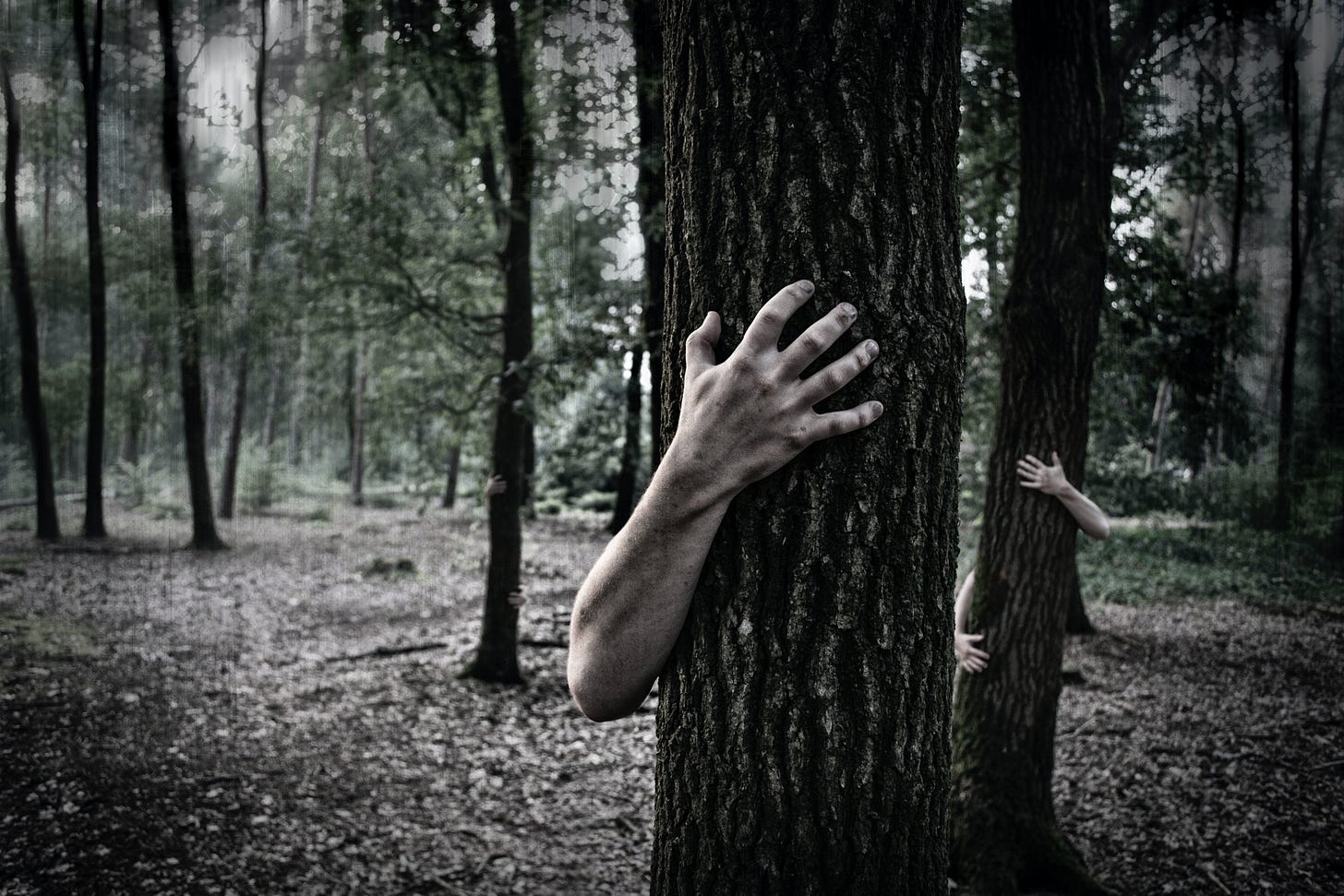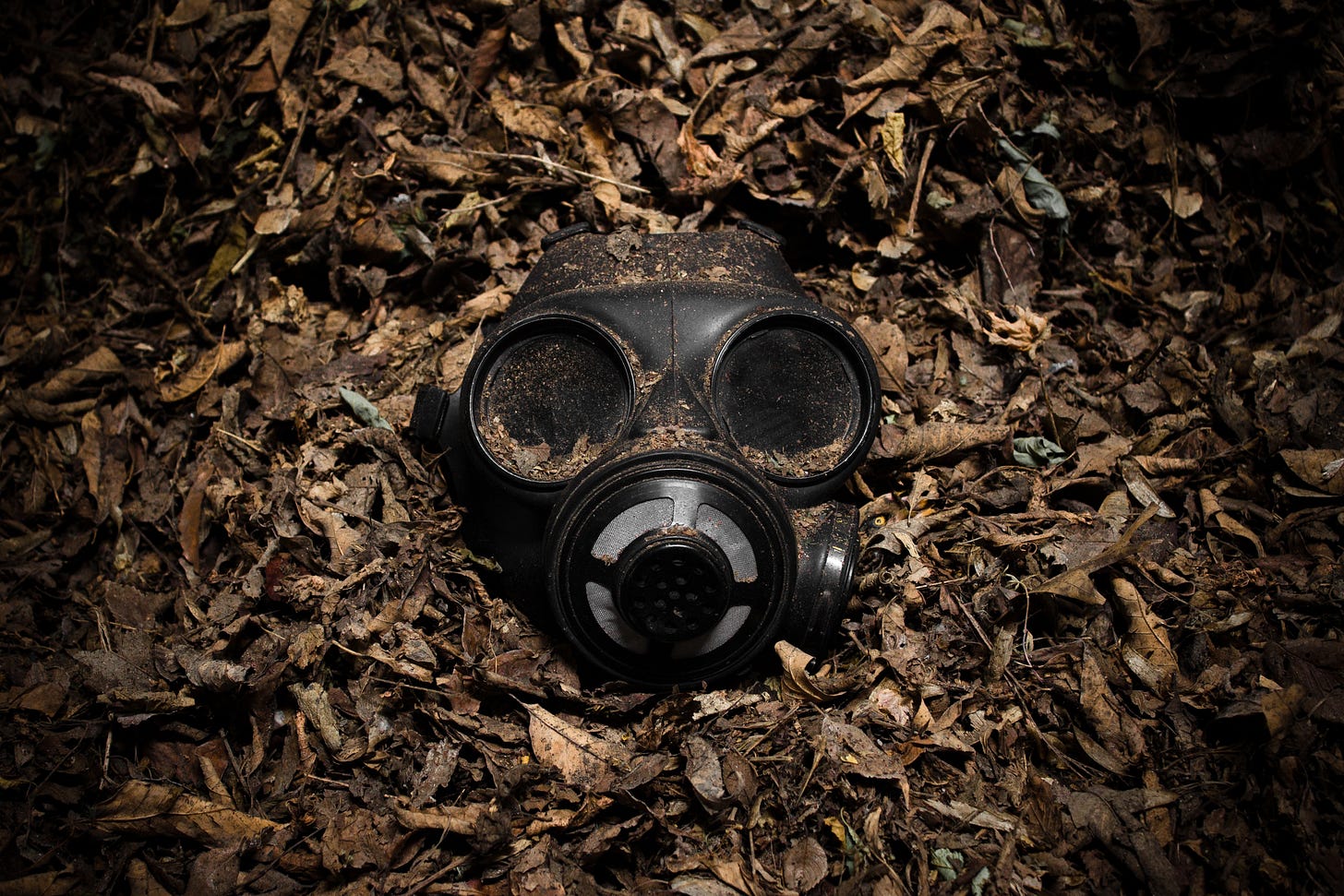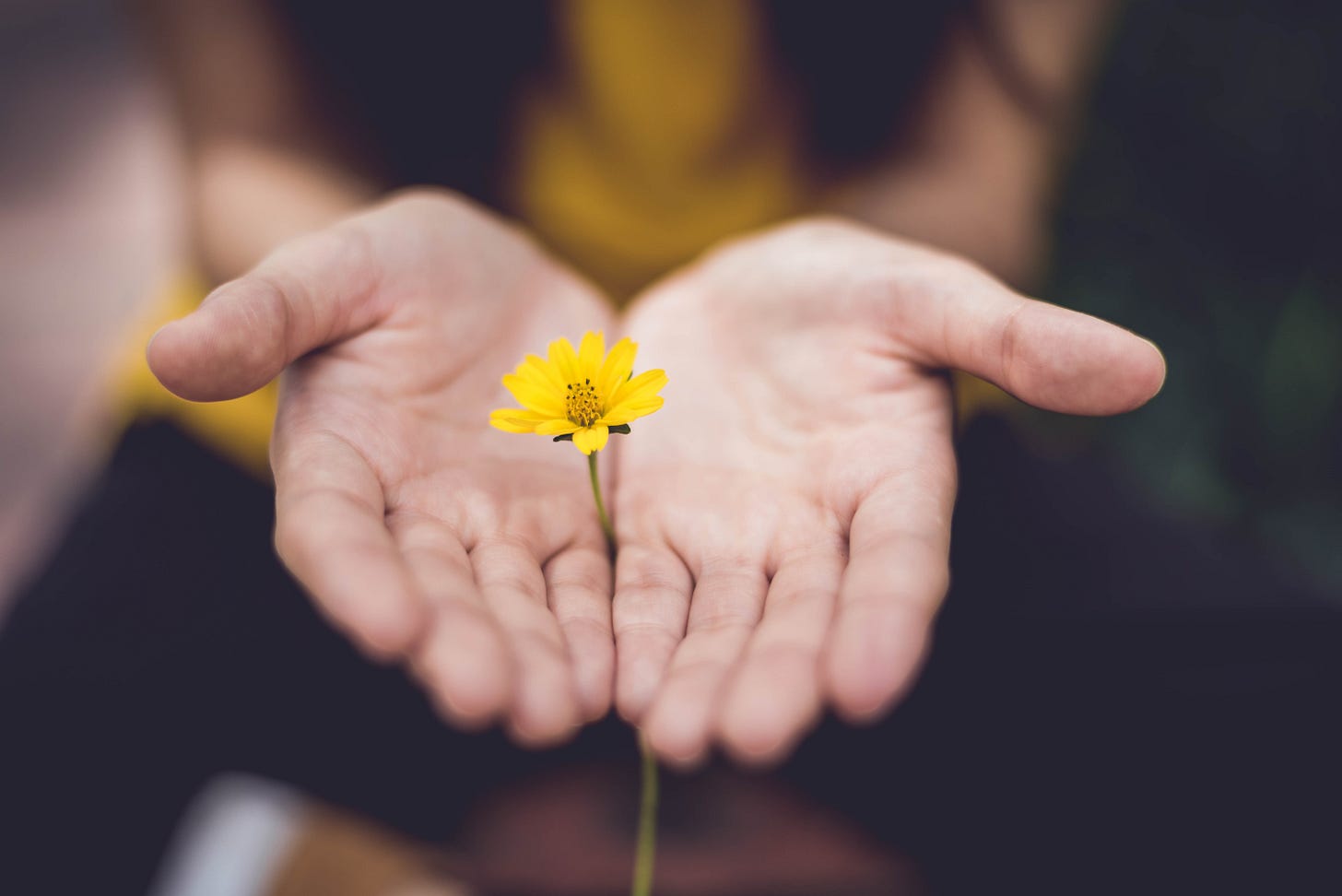
Jesus wasn’t asked about the future as much as you might think - probably because lots of people thought they knew what the immediate future held for them and for Him. (Narrator: They didn’t know.) But he was occasionally asked about the future, about what is referred to by the Old Testament prophets as “The Day of the Lord”. His answers were often long and included references to war and rumors of war and disease and deception and great distress - a description that sounds like this year or 1940 or 1916 or 1863. But he emphasized that we wouldn’t know the day or the hour and that we should be faithfully living out our mission while we are able. And who knows how long that will be?
Our questions about the end of the world haven’t gone away, certainly. I remember the impact on my childhood psyche upon seeing Charlton Heston’s character pounding the beach in anguish in front of the ruin of the Statue of Liberty at the ending of The Planet of the Apes (circa - for me - approximately 1972ish). About five years ago, we were in a flurry of apocalyptic cultural expressions - many of them including zombies. A post-apocalyptic world full of zombies seems like a worst-case scenario. Not only is the world (as we know it) over, not only have we lost loved ones and are fighting for survival, but the loved ones we have lost are wandering around as zombies - and our worst fear isn’t just death, it is what comes after - a life(?) as one of the zombies. This is the premise of The Walking Dead franchise. That there is a Walking Dead franchise says something about our interest. The implicit question of The Walking Dead, which follows a small groups of survivors in a post-zombie-apocalypse world, is “who really are the walking dead?” Is what we are required to do to survive in this world robbing us of our humanity? Are we really any different from the zombies? Or is the price in escaping their fate too high?
The zombie culture has faded a bit, but the questions about how this whole thing ends keep returning. The latest perceived path to our doom is artificial intelligence, or AI. Recently, Google suspended an employee over his claims that their AI had achieved the level of personhood. Everyone else disagrees as they question his mental health. (Of course, that is what they would say, isn’t it?). A similar path to destruction was depicted in the Terminator franchise, among others. Once the machines take over, it is almost as bad as the zombies. The implicit question is - are we just machines? (More on this in an upcoming post).
Part of my interest in apocalyptic books, movies, and TV shows lies in their tendency to ask such questions about our current existence from a fictionalized, extreme perspective. The world as we know it is always ending, to some extent. The question is what perspective do we have on those endings? The Leftovers depicts a world in which a small percentage of people just vanish. They thought they understood their world when something completely outside of that conception undermined that understanding. This unexplained and unexpected smashing of the equilibrium of civilization spurs all manner of strange (apocalyptic) cults and conspiracy theories. We all know that couldn’t happen here. Right?
This unexplained and unexpected smashing of the equilibrium of civilization spurs all manner of strange (apocalyptic) cults and conspiracy theories. We all know that couldn’t happen here. Right?
March of 2020 seemed like the beginning of one of those stories. The scenes from New York City and Northern Italy were positively apocalyptic in nature (and feel). Is this how it is going to be here? Everywhere? Thankfully, no - but it was a shock to a world that thought such things impossible - that thought them a relic of an unfortunate past. As it turned out, the pandemic, along with the events of the summer of 2020, was an unexpected smashing of the equilibrium of civilization which spurred all manner of strange cults and conspiracy theories. The equilibrium was false. As much as some might have hoped, there is no group of people keeping everything under control in the world. This, as much as anything else, is disorienting.

This returns us to the two questions that are behind so much of our analysis of the intersection of culture and faith that is behind The Embassy - Who are we? What story are we in? As I have said, I don’t think we can really and truly answer the first question without addressing the second. And our culture does not seem to be able to answer that second question. We seemed, for a minute there, to think we were beyond financial crashes - until the crash of 2008 (and maybe the crash of 2022?). The Great Pandemic was over 100 years ago and might as well have happened in another universe, it seemed so distant to us. We wanted to believe that we have things, more or less, figured out. We are working to cure cancer, to provide food for all who are hungry, to educate those without access, to rectify injustice and end war and promote freedom … there were big problems, but we were working on them and making progress. And we knew what they were. Then the pandemic smashed that false civilizational equilibrium. That isn’t the story we are in. That is just what we wanted to think about the story we are in.

I have written about the story I believe we are in and what that implies about our identity. But that is a very big picture understanding of the eternal story. Just as Jesus promised, there will be a remedy for all the injustice and suffering of the world and we can work against injustice and suffering while we know they won’t be ultimately banished until the very end of this story. But the end of the story, even for those who believe there will be an end, will come unexpectedly. Maybe this year, maybe 1000 years from now. And so, we are to live faithfully and fruitfully and missionally and lovingly and sacrificially and graciously for however long we have.
And so, we are to live faithfully and fruitfully and missionally and lovingly and sacrificially and graciously for however long we have.
If we seek simply to survive in these times, or in most times, we may be robbed of our humanity. Our true humanity should be faithful and fruitful and missional and loving and sacrificial and gracious - which is of great use in these pre-apocalyptic times. Our true humanity is suppressed in the anxiety and anger and outrage which finds expression in the strange apocalyptic cults and conspiracy theories that surround us. The inhabitants of the world of The Walking Dead were threatened by the prospect of living a zombie-like life while trying to survive in a world of zombies. The inhabitants of the world of The Leftovers needed to re-evaluate some of their safe assumptions about life without falling into one of the strange cults that were suddenly everywhere. They had the opportunity, once the falsities of the story they thought they were in had been stripped away, to live a life that was truly human and that reflected truly the image of God. Many of them didn’t take advantage of that opportunity.
“Get busy living, or get busy dying” Andy Defresne and Ellis “Red” Redding, The Shawshank Redemption (Steven King)
The world as we know it is always ending. We can be distracted by this ending that is always happening and live anxious, angry, and outraged lives. We can just survive. We can become obsessed with how and when we think the end will come. Or we can live with the awareness of a finite window of opportunity to live as we ought - to be, in God’s grace, as fully human as we can be, walking this road of redemption. That is the hardest choice. But it is what Jesus is telling me as his follower. The end of my story will come at some point and in some manner. That isn’t the question. The real questions are more like what will I have done, who will I have become, how will God’s grace and love have been born out in me when the end of my story does come - as it does for all of us.
If you’d like to support my work, access more content, and engage with me and other subscribers here, you can subscribe to The Embassy using the button below.
You will have access to essays, conversation threads, Q & A, and all the archives. If you have a question about anything, ask it by sending me an email at theembassy@substack.com
(I believe in paying for content where I can in order to encourage more of it. I have paid subscriptions to some publications in order to encourage them and more like them in this difficult media landscape we are in. But I also know that some people want to do that and can’t. This is why The Embassy offers free subscriptions to those who want all the content and want to engage with me and other subscribers, but can’t afford it (at least right now). If that is you, please email theembassy@substack.com for a free subscription to The Embassy)



